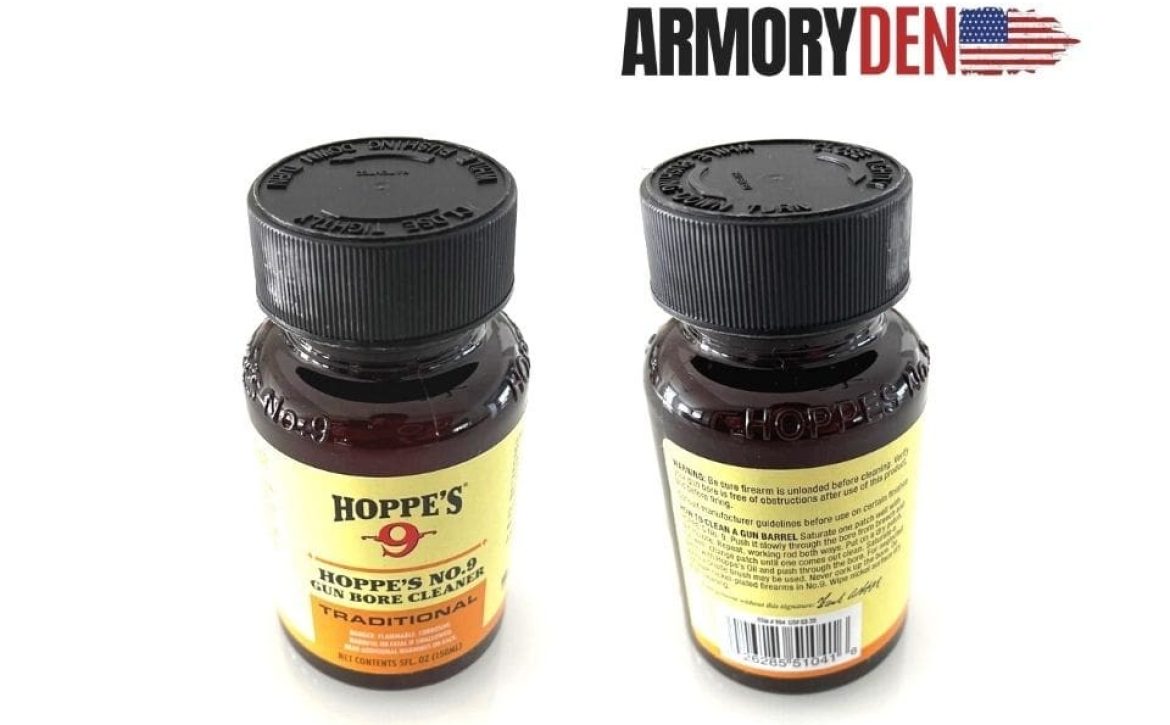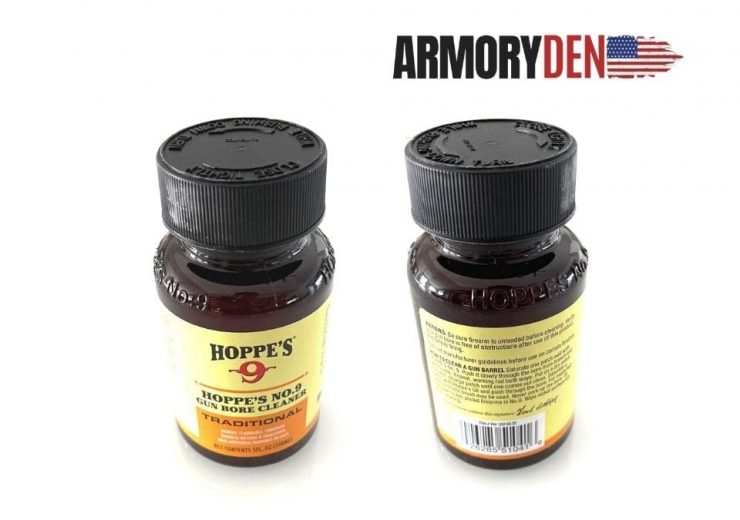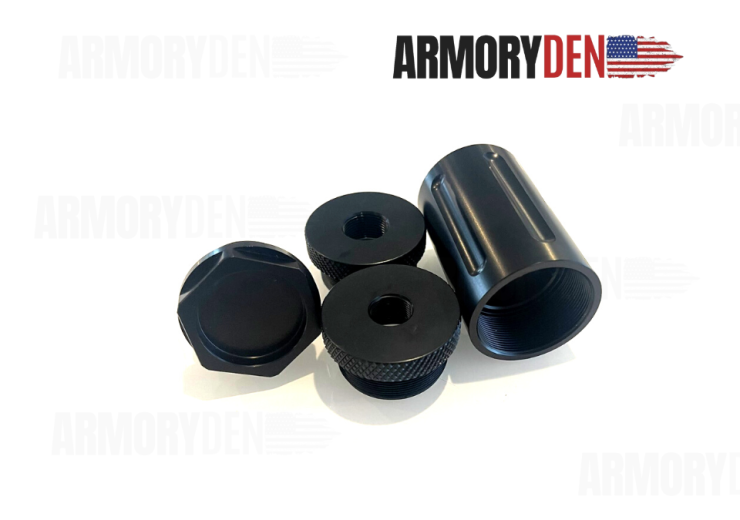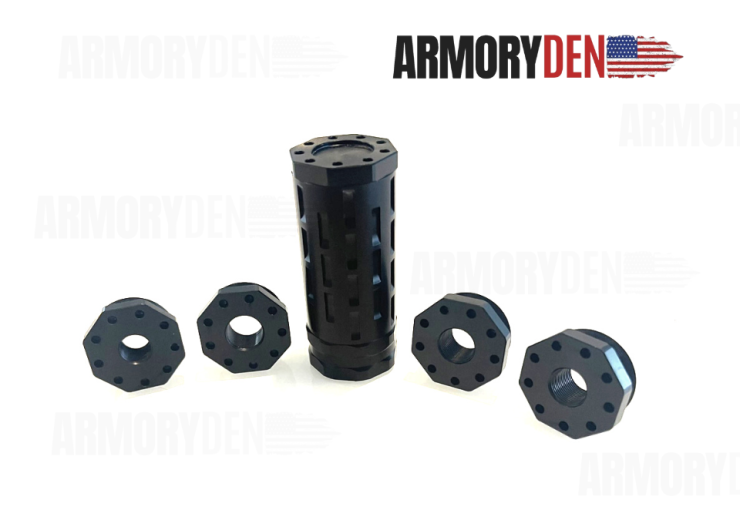Gun Cleaning Solutions – The best Remedy to remove gunpowder residue
What is a Firearm Cleaning Solution?
The cleaning solution for your firearm is synonymously called firearm cleaning solvent. In comparison, the solvent is the most commonly used firearm cleaning solution; however, there are other solutions like home remedies and Ultrasonic Firearm Cleaners as well. In order to get a better understanding of the differences, we have to look at what residue does to your firearm.
What does Gunpowder (Propellant) residue do to your firearm?
There is no way to discharge your firearm without leaving behind some residues. Your firearm needs to produce gases hot enough to propel a bullet (projectile) out of its barrel at every discharge. However, the temperature must not be too high, so the barrel will not explode. That is why the invention of black powder, the earliest version of gunpowder (Propellant), was revolutionary. Nevertheless, the black powder will not expel the projectile without leaving behind a vast sum of smoke. Therefore, various versions of smokeless propellants were invented to solve the smoky discharge from the black powder.
Whatever version of propellants you use in your firearm, there will be residue after every discharge. Depending on the chemical components of the powder, the residue could contain oxidizing agents which damage the quality of metal in your firearm. Irrespective of the propellants you use, their residue is harmful to your health and could damage your firearm.
For instance, nitro-glycerine is one of the significant compounds in today’s smokeless propellants; This compound could lead to bloating, dizziness, and difficulty in breathing. The propellant residue could also contain the lead dust, leading to brain damage and high blood pressure. Also, the potassium nitrate in some propellants is a strong oxidizer; therefore, it causes the metallic parts of your firearm to rust.
Solvent as a Firearm Cleaning Solution
A solvent is generally used in the cleaning routine of a firearm. Ideally, a solvent is any solution that can react with residue without changing its chemical compositions.
Nevertheless, some solvent solutions are highly flammable and can act as irritants to your eyes and skin. Therefore, ensure that you use solvents specifically designed for cleaning firearms. Solvent solutions like Hoppe’s No. 9 contain a formula that prevents the rusting of metallic parts in your firearm. A bottle of solvent comes in different sizes. Available on Armory Den’s store, a 5 oz bottle of solvent could be as low as $10! For easier cleaning, you can also use solvent trap kits so that you have everything you need.
A solvent trap comes in various sizes and styles, and you can also use a makeshift solvent trap. The main idea of a solvent trap is to use a cylindrical or conical container with one end closed and the other one open. The solvent trap is designed to trap solvent inside a firearm’s barrel with one end comfortably sitting on the firearm’s muzzle while the opposite end is sealed; thus, trapping the solvent. This allows the solvent to absorb the propellant residue and trap them. The mixture of solvent and the residue can then be disposed of safely.
While the makeshift solvent trap is less costly, it is advisable to use standardized ones. Standard or custom solvent traps come in different sizes. However, you can use an adapter to fit the solvent trap into the size of your firearm muzzle. You can also use other kits like cleaning rods and bore snakes with solvents.
Home Remedy
A home remedy is any product you can find in your home or stores next door and convert into a firearm cleaning solution. One of the everyday products that can easily be converted into a cleaner for your firearm is a mixture of vinegar and hydrogen peroxide. Each of these products is used as a disinfectant in the home. However, they form a chemical compound that can be a strong firearm cleaner if combined. It absorbed lead from the build-up of dirt, abrasive flakes, and unburnt propellant. This solution, however, creates a new compound that is highly toxic.
Unlike a solvent that does not chemically react with the object, the combination of vinegar and peroxide reacts with propellant residue and the firearm. Therefore, it is not safe to use this solution. Because you might not know the chemical components of the propellant you are using; thus, it is advisable to stay off such a home remedy.
One other home remedy but not really recommended is using washing soda. You can buy it in any drugstore. It has the corrosive properties to remove gunpowder stains or residue. Be careful when applying; use with extreme caution. If you are not really knowledgeable about how to use this remedy, better avoid it. You should only consider this if you have no other options. This is the last resort.
Should you consider creating a home remedy? As pointed out earlier, the mixture of vinegar and peroxide will react chemically with your firearm. There is a high possibility that you might not know the chemical compositions of your propellant. There is no guarantee how the home remedy will react with the propellant residue even if you do. Thus, to tread on the side of caution, it is advisable to avoid home remedies.
Gunpowder residue can be a problem for your firearm if you do not know how to clean and maintain it. The best advice, clean your firearms after every shooting session. That way, residue, and other dirt won’t build up. Use proper firearm cleaning solutions such as using gun solvent coupled with solvent trap kits to keep everything safe and clean.
References
- https://www.crime-scene-investigator.net/understanding-gunshot-residue.html
- https://www.sciencedirect.com/topics/chemistry/nitroguanidine
- https://www.webmd.com/drugs/2/drug-18030/nitroglycerin-oral/details
- https://www.louisianasportsman.com/general/gun-cleaning-miracle-home-remedy/
- https://armoryden.com/hoppes-no-9-gun-bore-cleaner-5-oz-bottle/
Notice: Please be advised that this article is for information purposes only and Armory Den, Inc., Armory Den, and/or Armoryden.com, does not accept liability for any negligence, injury, death or other personal or environmental consequences that occur from the sourced and unsourced information in this article.







